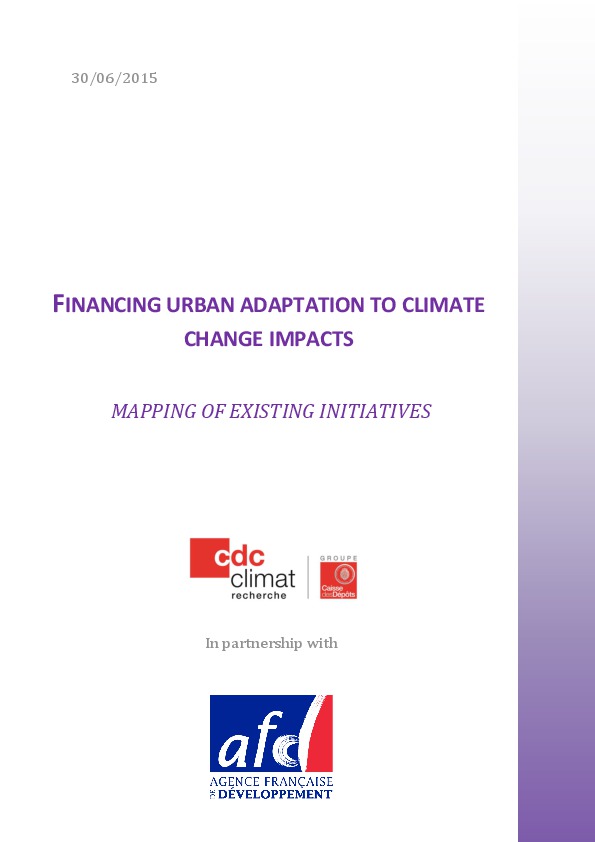Financing urban adaptation to climate change impacts – Mapping of existing initiatives
Realized in partnership with the French Development Agency, this study is a mapping of the types of initiatives available for the financing of urban adaptation to climate change, offering additional options to more conventional sources of funding for climate change and sustainable development (national budget transfers, Official Development Aid, etc.):
-Based on the review of 27 main initiatives, the report shows a strong prevalence of initiatives supporting soft adaptation measures (strategy planning, capacity building, project design, technical assistance, etc). These are in a position to help support the development of a coherent portfolio of bankable projects.
-The mapping reveals that local intermediaries (regional and local banks, national development funds, etc.) play a significant role in financing urban adaptation to climate change.
-Several key factor of success for the cities’ access to these sources of funding are also identified, among which liaising with international development stakeholders (such as multilateral and bilateral donors) at the local level, and the identification of various co-benefits and synergies between the economic, environmental and climate impacts.
